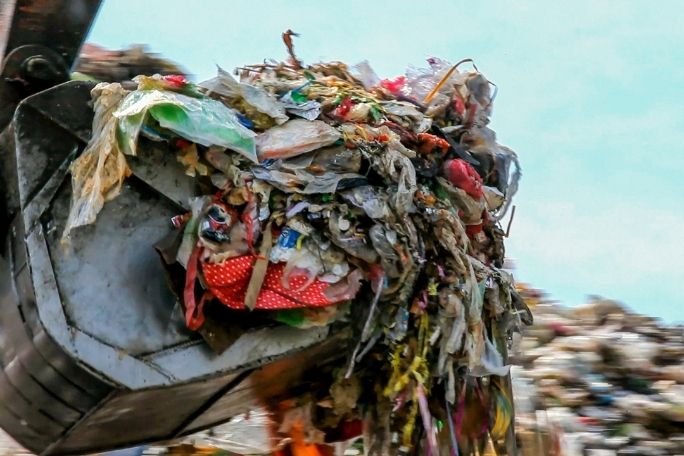Lesson summary
This lesson incorporates clips from Blue The Film as learning inspiration. In this lesson, students visit a series of sensory touch tables to investigate different waste materials and the properties of these materials. Using their scientific inquiry skills, students record their findings in a data table. They then consider the definition of rubbish and how recycling helps to reduce the amount of waste in our environment. Finally, students learn about the Great Pacific Garbage Patch and discuss ways we can help to reduce plastic pollution in our oceans.
Learning intentions:
Students will...
- understand that there are many different types of rubbish
- recognise that rubbish can cause harm to our oceans and the creatures that live there.
Success criteria:
Student will..
- know what rubbish is
- know what materials rubbish can be made out of (i.e. plastic, metal, rubber)
- be able to follow a sequence to find out how rubbish reaches the sea.
Lesson guides and printables
Lesson details
Curriculum mapping
Australian Curriculum content descriptions:
Foundation Science:
- Objects are made of materials that have observable properties (ACSSU003)
Year 1 Science:
- Everyday materials can be physically changed in a variety of ways (ACSSU018)
Year 2 Science:
- Different materials can be combined for a particular purpose (ACSSU031)
Syllabus outcomes: STe-9ME, ST1-12MW.
General capabilities: Critical and Creative Thinking.
Cross-curriculum priority: Sustainability OI.2, O.I9.
Relevant parts of Foundation Science achievement standards: Students describe the properties and behaviour of familiar objects. They suggest how the environment affects them and other living things. Students share and reflect on observations, and ask and respond to questions about familiar objects and events.
Relevant parts of Year 1 Science achievement standards: Students describe objects and events that they encounter in their everyday lives, and the effects of interacting with materials and objects.
Relevant parts of Year 2 Science achievement standards: Students describe changes to objects, materials and living things. They identify that certain materials and resources have different uses and describe examples of where science is used in people’s daily lives.
Unit of work: Blue The Film: Inquiry – Foundation, Blue The Film: Inquiry – Years 1 & 2.
Time required: 60 mins.
Level of teacher scaffolding: High – oversee activities, lead discussions and use sensory tables.
Resources required
- Student worksheet – one copy per student
- Pens/pencils
- Device capable of presenting a website to the class
- Various plastic and rubbish items (shopping bags, juice containers, hard plastic lids, paper, cardboard, small paper boxes, tin foil, cans, plastic cling wrap, wrappers, yogurt containers, etc).
Skills
This lesson is designed to build students’ competencies in the following skills:
- Empathy
- Communication
- Global citizenship
Additional info
Blue is a feature documentary film charting the drastic decline in the health of our oceans. With more than half of all marine life lost and the expansion of the industrialization of the seas, the film sets out the challenges we are facing and the opportunities for positive change.
Blue changes the way we think about our liquid world and inspires the audience to action. Find out how to screen or download the film here. Along with the film is an ambitious global campaign to create advocacy and behaviour change through the #oceanguardian movement. To become an ocean guardian, see the website.


Welcome back!
Don't have an account yet?
Log in with:
By signing up to Cool.org you consent and agree to Cool's privacy policy to
store, manage and process your personal information. To read more, please see
our privacy policy here(Opens in new tab).
Create your free Cool.org account.
Many of our resources are free, with an option to upgrade to Cool+ for premium content.
Already have an account?
Sign up with:
By signing up to Cool.org you consent and agree to Cool's privacy policy to
store, manage and process your personal information. To read more, please see
our privacy policy here(Opens in new tab).